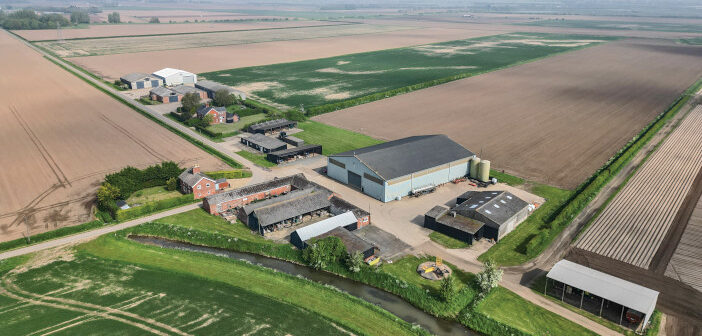The NFU has expressed its dismay with the first budget by new Chancellor Rachel Reeves.
Of particular concern are changes to Agricultural Property Relief (APR) that are likely to impact significant numbers of farm estates, including small and medium-sized enterprises, and an above-inflation hike in the National Living Wage (NLW), with the rate for over 21s increasing 6.7% to £12.21 from April. Defra also said it would accelerate the tail-off of direct payments for the largest recipients – and set the reduction on the first £30,000 of all payments at 76% for next year, with 100% reduction beyond that.
The NFU believe these changes will add to the cost of producing food at a time when hard-pressed British farmers cannot absorb it, meaning either the supply chain or consumers will end up bearing the brunt.
Reacting to the announcements, NFU President Tom Bradshaw said: “This Budget not only threatens family farms but will also make producing food more expensive. This means more cost for farmers who simply cannot absorb it, and it will have to be borne by someone. Farmers are down to the bone and gristle, who is going to carry these costs?
Breaking APR promise
“It’s been a bad budget for farm confidence, which is already at an all-time low. After today farmers, including tenants, have more uncertainty and more worry, not less.
“When you look farmers in the eye and make them a promise, keep it. The shameless breaking of those promises on APR will snatch away much of the next generation’s ability to carry on producing British food, plan for the future and shepherd the environment.
 “It’s clear the government does not understand that family farms are not only small farms, and that just because a farm is a valuable asset it doesn’t mean those who work it are wealthy. Let’s not sugar-coat this, every penny the Chancellor saves from this will come directly from the next generation having to break-up their family farm.
“It’s clear the government does not understand that family farms are not only small farms, and that just because a farm is a valuable asset it doesn’t mean those who work it are wealthy. Let’s not sugar-coat this, every penny the Chancellor saves from this will come directly from the next generation having to break-up their family farm.
“This is one of a number of measures in the Budget which make it harder for farmers to stay in business and significantly increase the cost of producing food.”
There is some good news within the Budget, as those hit by devastating rainfall earlier this year will ‘immediately’ have access to the £60 million Farm Recovery Fund, an increase of £10 million.
The agricultural budget for England has also been maintained, with Defra confirming this year’s budget to be £2.6 billion to reflect the underspend from the previous government.
Both announcements followed sustained NFU campaigning that saw meetings with ministers, MPs and departments run right up to Budget week.
The budget came after the government had ruled out increasing taxes on ‘working people’ in its manifesto, including Income Tax, National Insurance (NI) and VAT. It did, however, feature a change to the employer portion of National Insurance (NI) contributions, which will rise from a rate of 13.8% to 15% from April 2025. The threshold at which businesses start paying National Insurance on a workers’ earnings will also be lowered from £9,100 to £5,000, although the Chancellor promised turnover-based exemptions for smaller businesses.
In a surprise move, the thresholds at which people start to pay NI or Income Tax, which had been frozen since 2021, will be “uprated in line with inflation once again” from 2028-2029. This should mean fewer people are drawn into higher rates as their wages increase.
Better than expected
However, farm consultancy Saffery suggests the Budget isn’t as bad as the rural sector might have expected.
It does accept it delivers a number of challenges that will make farming for food and for the environment increasingly difficult to deliver down the generations.
It sees the biggest announcement for the rural sector related to APR and Business Property Relief (BPR) for Inheritance Tax. “Today’s announcement sets a £1m cap to the 100% rate of relief on the combined value of both business and agricultural assets. Over this cap Inheritance Tax will apply, but with 50% relief, thereby resulting in an effective tax rate of 20%. These measures will take effect from 6 April 2026 and will apply not only to charges on death but lifetime transfers into trusts or to individuals, in addition to decennial and other charges for relevant property trusts. Anti-forestalling rules have been put in place such that the new rules will take effect from today, Budget Day. It’s likely that these changes to IHT reliefs overall will impact a large number of landed estates, smaller farming units and rural businesses,” said David Chismon, partner and head of the land and rural practice group.
Peter Harker, Partner and Head of natural capital at Saffery, noted the Chancellor’s position on APR and land managed under environmental schemes. He said: “The Chancellor has today confirmed the extension of Agricultural Property Relief to land managed under certain approved environmental schemes from April 2025. However, the impact of the £1m cap taking effect from April 2026 will reduce the effect of this measure.”
David Chismon went on to note that: “The increase in the higher rate of Capital Gains Tax on non-residential property to 24% was trailed in advance of the Budget, so will not have come as a surprise to many taxpayers. This will increase the tax charge on sales of land and shareholdings with effect from Budget Day.”
He said also: “Rises in the National Living Wage and Minimum Wage will affect the viability of some small rural businesses, as will the increase in employer National Insurance by 1.2% to 15% coupled with the lowering of the threshold at which employers will pay it to £5,000 from £9,100, although this will be offset by employers being able to claim back an increased amount from their NI bill of up to £10,500 in respect of the employment allowance.
“The discount on business rates, currently 75% and due to end in April 2025, will be replaced by a 40% discount which will still see the rates of many businesses nearly double. Again, this may present challenges for rural businesses.
“Many family farms and rural businesses are asset rich in terms of land and property but cash poor, and will be considering their options and tax exposure in light of the changes announced today.”




